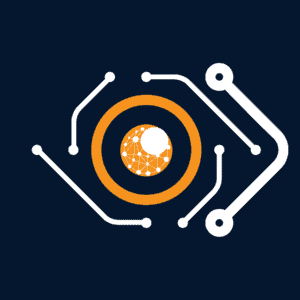This week; can Artificial Intelligence (AI) teach us how to become more emotionally intelligent?
Welcome to The Digital Eye, your weekly roundup of the latest technology news.
Our team of experts have scoured the internet for the most exciting and informative articles so that you can stay up-to-date on all things digital, data, blockchain, AI & analytics.
This Week’s Top Reads:
-
-
Bonus Article:
We hope you find this information valuable and would appreciate your help in sharing it with others who may also be interested.
The Turing Trap
We should be focusing AI on augmenting Humans, not mimicking them!
Article Intro
“The Promise & Peril of Human-Like Artificial Intelligence In 1950, Alan Turing proposed an “imitation game” as the ultimate test of whether a machine was intelligent: could a machine imitate a human so well that its answers to questions are indistinguishable from those of a human.1 Ever since creating intelligence that matches human intelligence has implicitly or explicitly been the goal of thousands of researchers, engineers and entrepreneurs. The benefits of human-like artificial intelligence (HLAI) include soaring productivity, increased leisure, and perhaps most profoundly, a better understanding of our minds.” >> Read More
Article by @forbes
How to Apply Artificial Intelligence to Solve Business Problems
Article Intro
“Order from chaos
Building machine learning or AI solutions in the wild is difficult. Besides the uncertainty involved, convincing your business stakeholders to invest in your solution can be extremely difficult. On top of this, there’s an added layer of complexity when you are attempting this in a regulated industry such as banking or pharmaceuticals. I’ve taken the liberty of mapping out how I approach it as a data science lead working in financial services.
The method focuses on six core areas: Business Capture, AI Problem Framing, Data Strategy, AI System Design, Feasibility Assessment & Performance Evaluation.
>> Read More
Article by @TDataScience
Deploying machine learning to improve mental health
Artificial Intelligence for good!
Article Intro
“MIT scientist Rosalind Picard collaborates with clinicians to develop mental health care delivery tools. A machine-learning expert and a psychology researcher/clinician may seem an unlikely duo. But MIT’s Rosalind Picard and Massachusetts General Hospital’s Paola Pedrelli are united by the belief that artificial intelligence may help make mental health care more accessible to patients. In her 15 years as a clinician and researcher in psychology, Pedrelli says, “it’s been very, very clear that there are several barriers for patients with mental health disorders to accessing and receiving adequate care.” >> Read More
Article by @MIT
Tangible Business Insights
It’s Not Data That You Need; it’s Tangible Business Insights. It’s time to focus!
Article Intro
“It’s Not Data That You Need, It’s Tangible Business Insights. When it comes to data insights, companies must have access to and analyse and pull significant insights from their data. Today, I will be interviewing Carl Leskinen, co-founder and CEO of Burt Intelligence. Burt Intelligence is a platform that provides revenue insights for publishers, advertisers, and brands to analyse and share their advertising data. Burt prioritises the essential information for publishers and marketers on the state of their in-progress advertising campaigns. The company leverages mighty AI and data analytics to help publishers and advertisers avoid revenue loss to error and maximise ROI.” >> Read More
Article by @Forbes
How to know when AI is the right solution
“Historical data: AI’s key to predicting future results”
Article Intro
“Business value, training data and cultural readiness are essential for AI success. Without all three, traditional solutions are your best bet. Artificial intelligence (AI) adoption is on the rise. According to a recent McKinsey survey, 55 per cent of companies use artificial intelligence in at least one function, and 27 per cent attribute at least 5 per cent of earnings before interest and taxes to AI, much of that in the form of cost savings. As AI will dramatically transform nearly every industry it touches, it’s no surprise that vendors and enterprises are looking for opportunities to deploy AI everywhere they can. But not every project can benefit from AI, and attempting to apply AI inappropriately can cost not only time and money but also ….” >> Read More
Article by @ARNnet
Bonus Article
Can AI Teach Us How to Become More Emotionally Intelligent?
Emotional Intelligence is “a type of social intelligence that involves the ability to monitor one’s and others’ emotions, to discriminate among them, and to use this information to guide one’s thinking and actions.”
Article Intro
“Summary: Emotional intelligence matters more to one’s success as a manager than IQ or technical skill. The main takeaway: emotional intelligence is just as important as any “hard skill”, and investing in it helps individuals and teams succeed at work. Companies are wise to explore AI solutions that can help make their teams more emotionally intelligent and better communicators. Indeed, AI can enhance our emotional intelligence by making us more self-aware and helping us manage key work relationships. Improving our emotional intelligence and communication skills makes us more efficient, productive, and empathetic. Although the technology is far from perfect, it is becoming more intelligent every day as platforms increase in data, scale, and sophistication. The technology is in place to make our teams more emotionally intelligent and companies more successful and profitable.” >> Read More
Article by @HarvardBiz
-


 The DiGITAL EYE
The DiGITAL EYE